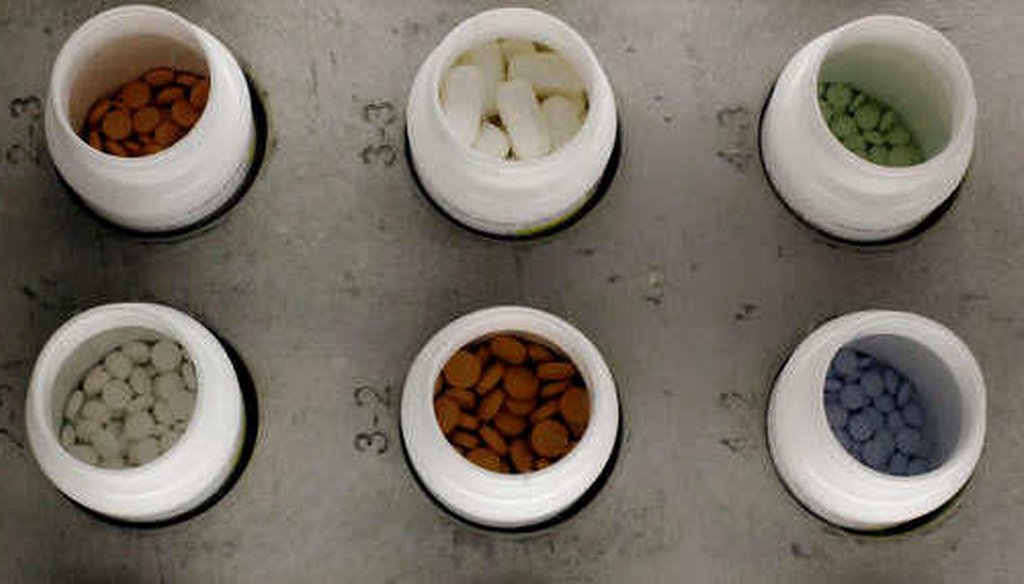Recibe PolitiFact en tu buzón.
Some progress on prescription drug access, but big changes have yet to come

Prescription drugs at a hospital dispensary. (AP)
The promise was to make cheaper drugs available. About one in four Americans say they have a difficult time paying for their medicines. Prescription drugs represent about 10 percent of all health care spending, and the share is projected to creep higher.
Here's how Donald Trump spelled out his goal on his campaign website:
"Remove barriers to entry into free markets for drug providers that offer safe, reliable and cheaper products. Congress will need the courage to step away from the special interests and do what is right for America."
In practice, making headway here hinges on getting generic drugs to market. Those are the medicines that no longer have patent protection. A patent gives the original drugmaker monopoly power for 20 years, or longer if the company finds a way to extend it. When a drug goes generic, many producers can make it, and the price plummets.
David Mitchell, head of Patients for Affordable Drugs, an advocacy group that takes no money from drug makers, told us the Trump administration has helped clear the backlog of generic drugs waiting for approval.
"More generics are coming to market faster," Mitchell said.
The Food and Drug Administration numbers show that the average number of generic drugs approved each month went from about 54 in the last year of the Obama administration, to 71 during the Trump administration.
But Mitchell said that doesn't get to root of the problem of high prices -- thebtactics that extend the life of patent protection.
"The administration has done virtually nothing in that regard," Mitchell said.
Drugmakers have several tools at their disposal. They can pay generic drugmakers not to produce a drug that has come off of patent protection, a practice known as "pay for delay." They can make a small change in the original drug and call it a new drug worthy of more patent protection. That's called "evergreening." And they can refuse to give samples to generic drug makers that would allow them to reverse engineer a generic copy.
While some legislation has started in Congress to address some of these issues, nothing has passed.
Trump also promised to make it easier for cheaper drugs to be imported, but Mitchell said there's been no progress on that front either.
We reached out to the White House for an update and did not hear back.
We rate this promise In the Works.
Nuestras fuentes
Donald J. Trump website health care reform page
U.S. Food and Drug Administration, Activities Report of the Generic Drugs Program, Dec. 7, 2017
Interview, David Mitchell, president, Patients for Affordable Drugs, Dec. 18, 2017
